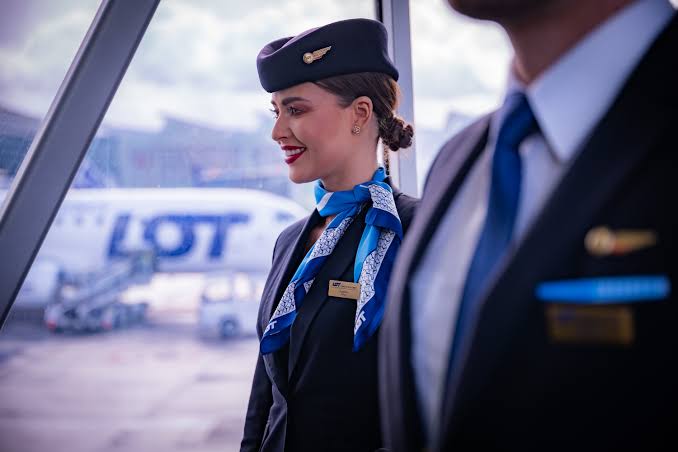Dark Day for Aviation: Ryanair Flight Crash Kills 100, Airline on the Brink
In a devastating turn of events, Ryanair, one of Europe’s leading low-cost carriers, is facing an unprecedented crisis after one of its aircraft tragically crashed, killing all 100 people on board. The disaster has sent shockwaves through the global aviation industry and raised serious questions about the future of the airline, which now faces intense scrutiny, legal challenges, and potential collapse.
The Tragedy Unfolds
The ill-fated flight, operating under Ryanair’s routine short-haul schedule, departed from Dublin, Ireland, heading to Milan, Italy. Weather conditions were reportedly stable, and the aircraft, a Boeing 737-800, was believed to be in proper working condition. Approximately 45 minutes into the flight, the plane disappeared from radar, prompting immediate emergency protocols across European airspace.
Search and rescue teams were deployed swiftly, and within hours, debris from the aircraft was located in a remote mountainous area near the Alps. Wreckage was scattered across a vast terrain, making recovery efforts painstakingly difficult. It was later confirmed that there were no survivors—among the deceased were 95 passengers and 5 crew members.
Emergency responders described the scene as “catastrophic,” and air crash investigators from multiple countries, including Ireland, Italy, and representatives from Boeing, were dispatched to the site to begin a full-scale investigation.
Initial Reports and Investigations
While it is too early to determine the exact cause of the crash, preliminary information suggests a possible mid-air mechanical failure. Eyewitnesses on the ground reported hearing a loud explosion moments before seeing smoke trailing from the aircraft. Black box data recorders have been recovered and are currently being analyzed by aviation experts.
The European Union Aviation Safety Agency (EASA) has vowed a thorough and transparent investigation. In a press conference held the following day, EASA’s spokesperson stated, “This is not just an Irish tragedy or a Ryanair incident—it’s a European and global concern. We owe it to the victims and their families to uncover the truth.”
Global Reaction and Mourning
The loss of 100 lives has sparked grief and outrage across the world. Vigils and memorial services are being held in cities across Ireland and Italy, and international leaders have extended condolences. Irish Prime Minister Aisling Keane expressed deep sorrow, saying, “Our nation grieves today. We stand with the families of the victims in this hour of unimaginable loss.”
Airlines and aviation agencies globally have shown solidarity. Several carriers, including Lufthansa and British Airways, observed a moment of silence and dedicated flights in memory of those lost.
Ryanair Under Fire
Founded in 1984, Ryanair has grown to become one of Europe’s largest budget airlines, known for its aggressive pricing and rapid expansion. However, the company has also faced criticism over the years for its cost-cutting practices, labor disputes, and safety concerns.
In the wake of the crash, these past issues are resurfacing with renewed intensity. Aviation analysts and former employees are calling attention to Ryanair’s maintenance protocols, claiming that some safety procedures may have been compromised to reduce operating costs.
While Ryanair has maintained a relatively strong safety record compared to industry averages, the current tragedy casts a long shadow. The airline’s CEO, Michael O’Leary, appeared visibly shaken during a televised address, stating, “We are heartbroken. This is the darkest day in Ryanair’s history. We are fully cooperating with investigators and will do everything possible to support the families affected.”
Despite these assurances, public trust has been severely eroded. Social media has been flooded with stories from former passengers and crew highlighting past issues, and hashtags like #BoycottRyanair are trending across Europe.
Financial and Legal Ramifications
The airline’s stock plummeted within hours of the crash, shedding nearly 30% of its market value. Financial analysts warn that the long-term impact could be far worse, especially if the investigation reveals negligence or systemic failures. Some experts suggest that Ryanair may not recover, especially if lawsuits from the victims’ families result in billions of euros in damages.
Several law firms have already begun preparing class-action suits, and governments are considering imposing stricter regulations on budget airlines operating in the EU.
Insurance companies are also on high alert. With 100 lives lost and a high-profile company involved, this could become one of the costliest aviation disasters in recent European history.
Industry-Wide Implications
Beyond Ryanair, the crash has reignited debates about safety standards in the budget airline sector. While low-cost carriers have revolutionized air travel by making it accessible to millions, critics argue that aggressive cost-cutting can sometimes lead to lapses in safety and quality.
Calls for tighter oversight are growing louder. Aviation unions and watchdog organizations are demanding comprehensive audits of all budget carriers and revisions to international safety protocols.
European Commissioner for Transport, Carla Jensen, announced plans for a special summit to discuss the implications of the crash. “We must ensure this never happens again. Budget should never come before safety,” she said.
A Community in Mourning
Among the victims were people from diverse backgrounds—students, business travelers, holidaymakers, and families. Stories have begun to emerge, painting a heartbreaking picture of lives lost too soon. One widely shared story is that of a young Italian couple on their honeymoon and an Irish student returning home after completing a semester abroad.
Airports in Dublin and Milan have set up grief counseling centers for families and friends of the victims. A temporary memorial has also been established near the crash site, where locals have placed flowers, candles, and handwritten notes.
What Comes Next
As investigators work to determine the cause of the crash, the world waits with bated breath. For Ryanair, the road ahead is uncertain. The airline must navigate not only a complex legal and financial landscape but also a crisis of public trust that may prove insurmountable.
For now, flights have been grounded, and operations suspended pending further review. The aviation industry, meanwhile, faces a reckoning. Safety, transparency, and responsibility are once again at the forefront of a global conversation that demands real change.
The skies, once a symbol of freedom and adventure, feel heavier today. The names of the 100 lives lost will not be forgotten. And as the black boxes tell their story, the world hopes they also bring answers—and justice.






